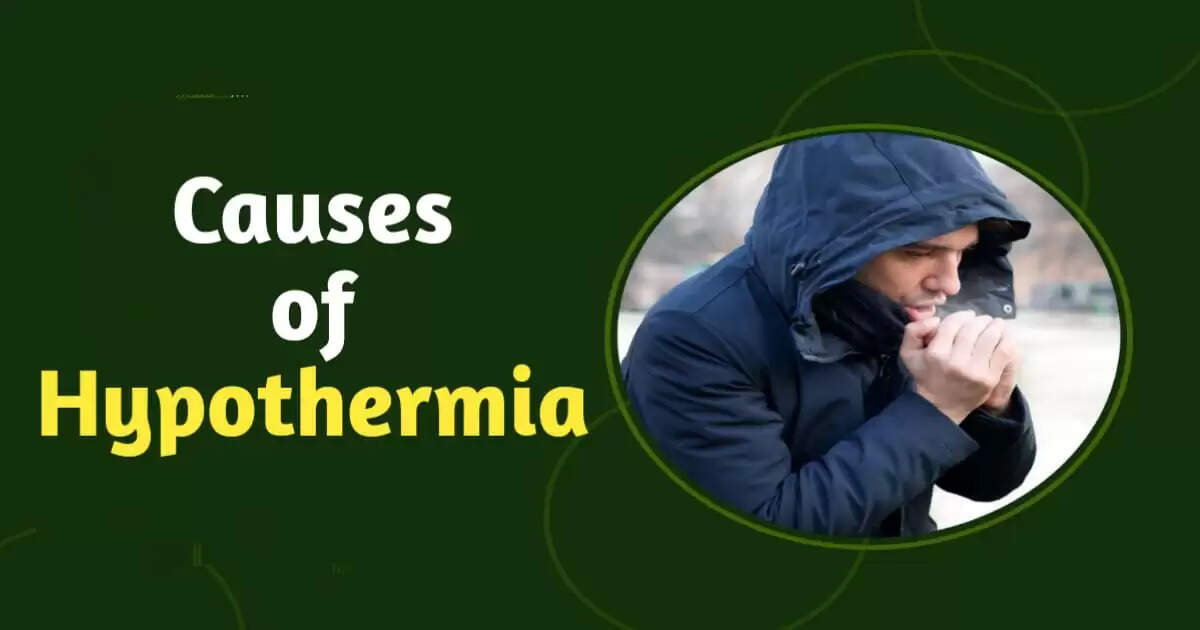Causes of Hypothermia (Low Body Temperature): 5 Surprising Reasons Why Your Feet Are Always Cold

Causes of Hypothermia: Cold feet can be an uncomfortable and perplexing experience, especially when the rest of your body feels relatively warm. While cold feet are often overlooked as a minor inconvenience, they can sometimes indicate underlying health problems or environmental factors that affect blood flow and body temperature regulation.
Persistently cold feet may also be associated with hypothermia, a condition in which the body’s core temperature drops to dangerously low levels.
Let’s find out about the 5 surprising reasons why your feet always feel cold and what you can do to deal with this problem.
Causes of Hypothermia:
Are you someone who always feels cold (hypothermia)? Here are the top 5 surprising reasons behind this unusual physical phenomenon:
Poor Blood Circulation:
One of the main causes of cold feet is poor circulation. When blood doesn’t flow properly to your limbs, it can cause your feet to feel quite cold. Conditions like peripheral artery disease (PAD) can worsen this problem, making it important to keep an eye on your vascular health. To boost circulation, try incorporating regular exercise into your routine; it can significantly improve blood flow and help keep your feet warm.
Nerve damage:
Another unexpected cause of cold feet can be nerve damage, medically known as neuropathy. This condition can result from diabetes, alcoholism, or certain autoimmune disorders. When the nerves in your feet are affected, they can’t send proper temperature signals to your brain, resulting in a feeling of cold. If you think you may have nerve damage, it’s important to talk to a healthcare provider who can suggest the right treatment and lifestyle adjustments.
Hypothyroidism :
Hypothyroidism, in which your thyroid gland produces fewer hormones, can also cause cold feet. This hormonal imbalance can slow your metabolism and lower your body temperature. People with hypothyroidism may also experience other symptoms like fatigue and weight gain. If you're dealing with these symptoms along with cold feet, a simple blood test can check your thyroid hormone levels. Your doctor can then recommend appropriate treatment to bring them back into balance.
Poor diet and dehydration :
Your everyday choices affect how well your body regulates temperature. A poor diet and not drinking enough water can lead to cold feet. A lack of essential nutrients like iron and vitamin B12 can impede blood circulation and lead to anemia, which often manifests as cold extremities. In addition, dehydration reduces blood volume, which further affects blood circulation. Combat this by focusing on an iron-rich diet and staying hydrated to maintain your body temperature.
Anemia:
Anemia, a condition in which the body lacks enough healthy red blood cells to carry oxygen, can also cause cold feet. This is because anemia reduces oxygen supply to tissues, including the feet, causing them to feel cold. Iron deficiency anemia is the most common type and can be caused by poor dietary intake, heavy menstrual periods, or chronic illnesses. Anemia-related fatigue and weakness often accompany cold feet, making it easy to recognize.
